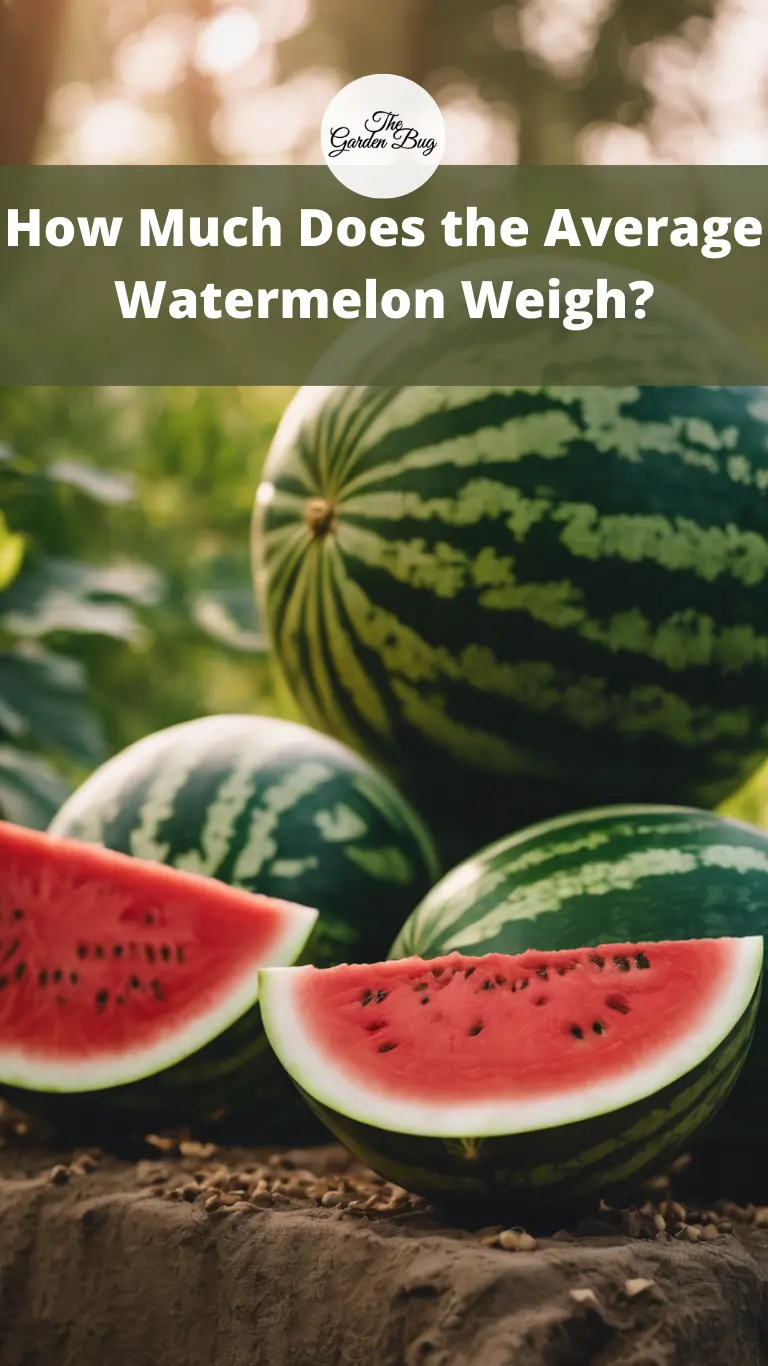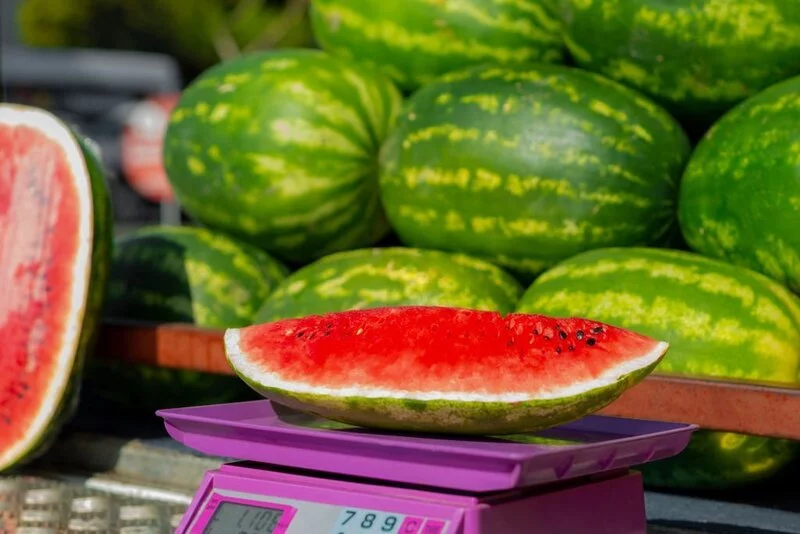Ah, watermelon! Nothing says summer like biting into a juicy, sweet slice of this refreshing fruit. But have you ever wondered, “Just how much does the average watermelon weigh?” Knowing the answer to this question might help you decide how much to buy for your next picnic, party, or just for your family to enjoy at home. In this article, we’re going to explore the fascinating world of watermelons, focusing specifically on their weight.
Factors That Affect the Weight of a Watermelon
Just like people, no two watermelons are exactly alike, and that includes their weight. Several factors can influence how much a watermelon weighs. Here are the main ones:
- Variety: There are many types of watermelons, ranging from the petite Sugar Baby to the mammoth Carolina Cross, which can weigh over 200 pounds!
- Growing Conditions: The environment in which a watermelon grows can significantly affect its weight. Access to sunlight, water, and nutrients, along with the length of the growing season, all play a part in determining the final weight of the fruit.
- Harvest Time: The longer a watermelon is allowed to grow, the larger and heavier it can become. However, if it’s left on the vine too long, it might become overripe and lose its sweet flavor.
So, with all these factors in play, how much does the average watermelon weigh? Let’s delve a little deeper and explore the weights of different watermelon varieties.
Types of Watermelons and Their Average Weights
Watermelons come in all shapes and sizes. Here’s a look at the average weight of a few popular types:
- Common Watermelon Varieties:
- Jubilee Watermelon: These watermelons are big and can easily weigh between 25-40 pounds.
- Crimson Sweet: A garden favorite, this variety weighs in at around 15-25 pounds.
- Sugar Baby: These watermelons are small and compact, typically weighing around 6-10 pounds.
- Specialty Watermelon Varieties:
- Orangeglo: Known for its orange flesh, this variety weighs between 20-30 pounds.
- Moon and Stars: Named for its unique skin markings, this variety averages 15-20 pounds.
How to Estimate the Weight of a Watermelon
So, you’re at the grocery store or farmer’s market, and you spot a watermelon. How can you estimate its weight without a scale? Here’s a simple trick:
- Lift It: Use both hands and lift the watermelon. It should feel dense and heavy for its size.
- Compare It: If there are several watermelons of similar size, compare their weight by lifting each one. The heaviest will typically be the ripest and juiciest.
Remember, the weight of the watermelon can give you a clue about its ripeness and sweetness, as the heaviest ones are usually filled with delicious, juicy fruit. Now that we know about watermelon weights, let’s explore how we can use and benefit from this wonderful fruit!
Uses and Benefits of Watermelon
Beyond being a favorite summer snack, watermelons have a wide array of uses and benefits:
- Healthy Hydration: Watermelons are 92% water, making them a great choice for hydration. On a hot summer day, a slice of watermelon can be more refreshing than a glass of water!
- Nutrient Rich: Watermelons are packed with vitamins, particularly vitamin C and A. They’re also a good source of antioxidants, including lycopene, which is linked with heart health.
- Versatility in the Kitchen: From being a key ingredient in salads and smoothies, to being grilled as a savory treat, watermelons are quite versatile in the kitchen. You can even use the rind in pickles!
Conclusion
So, there you have it! The weight of an average watermelon can vary greatly, from a petite 6-pound Sugar Baby to a hefty 40-pound Jubilee. But no matter the weight, one thing remains consistent – the refreshing, sweet flavor that has made watermelons a beloved choice worldwide. So next time you’re in the market for a watermelon, you’ll have a better idea of the weight to expect and how to choose the best one for your needs. Happy watermelon picking and enjoy this delicious fruit in all its juicy glory!



